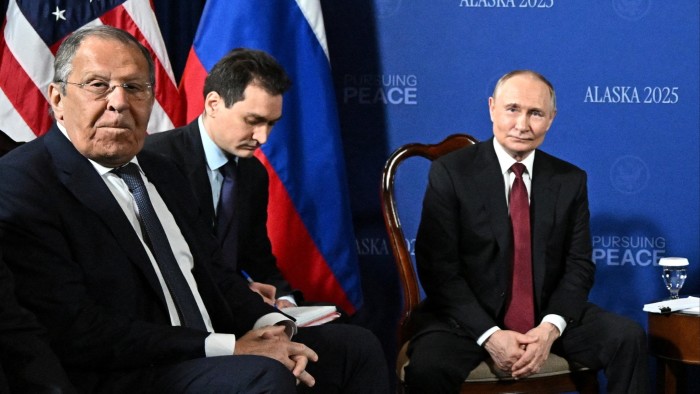Unlock the White House Watch newsletter for free
Your guide to what Trump’s second term means for Washington, business and the world
The writer is a former US secretary of state
The extraordinary meetings that President Donald Trump has held in the past week with Russian President Vladimir Putin, Ukrainian President Volodymyr Zelenskyy and key European leaders demonstrates his deep commitment to achieving a lasting peace after three and a half years of bloodshed, something his predecessor never sought. The president is marshaling American strength to build the coalition necessary to secure Ukraine’s future — exactly the kind of leverage Putin fears.
As someone who sat across the table from Putin as secretary of state, I know he only responds to strength. Trump understands this reality. His success in securing Nato allies’ commitment to 5 per cent defence spending proves his approach delivers results where diplomatic niceties fail.
This clear-eyed realism will be crucial to ensuring that any deal to end Russia’s war on Ukraine secures Kyiv’s sovereignty and deters Moscow from future acts of aggression.
Putin has indicated that he wants Zelenskyy to surrender the eastern Donetsk and Luhansk provinces as a condition for ending the war. This would be a strategic catastrophe for Ukraine and a political non-starter for its government.
Handing control of Ukraine’s industrial heartland and key defensive belt to Russia — which thousands of Ukrainians have fought and died to defend — would stymie the country’s reconstruction and set the stage for Russia to complete its conquest.
More fundamentally, rewarding Putin’s aggression with territorial gains would signal to every dictator worldwide that violence pays. Russia’s neighbours in the Baltics and other former Soviet states such as Moldova would then have serious cause to fear that they could be next on Putin’s list.
Let me be clear: securing peace will probably require difficult compromises. With the war at a stalemate and the Ukrainian people exhausted by years of bloodshed and destruction, Zelenskyy faces a choice between continued suffering and imperfect solutions.
But there is a red line: Ukraine should never be compelled to recognise Russia’s claims to territories Moscow has seized and occupied illegally. Such a recognition would legitimise Russia’s position and hand it an enormous military and propaganda victory. And if America appears to endorse Russia’s land grab — let alone actually recognising any territorial claims — we might as well send Xi Jinping an engraved invitation for China to seize Taiwan.
Any peace deal that does not include robust security guarantees for Ukraine is not worth the paper it’s printed on. Ukraine has seen this movie before: in 1994, the west promised to protect Ukraine’s sovereignty in exchange for surrendering the Soviet nuclear weapons then based on Ukrainian territory.
But fine words do not amount to action, as Putin demonstrated when he first invaded Ukraine in 2014 and then again in 2022. Indeed, Putin has given zero indication that he is prepared to concede anything significant in the name of peace, and has demonstrated his contempt for this diplomatic process by continuing strikes on Ukrainian civilians in recent days.
What’s more, Sergei Lavrov’s absurd suggestion that Russia would need to have an effective veto over any security arrangements to protect Ukraine indicates that the Kremlin either believes it can bully or embarrass the west into making a bad deal.
The current discussions about security guarantees are promising, but without detailed and concrete commitments — European forces deployed along Ukraine’s borders and an ironclad US commitment backing them — Ukraine won’t be able to accept any peace deal.
Recommended
Putin must be convinced that any future aggression will trigger an overwhelming response. Ultimately, Trump must remain resolute in backing the European “coalition of the willing”, and ready to do whatever is necessary in response to any future Russian violations of Ukrainian sovereignty.
Zelenskyy has the unenviable task of finding a compromise that is palatable to his own people, achievable in the current geopolitical context, and which does not allow the perfect to be the enemy of the good.
Some will argue Ukraine should simply accept Putin’s terms for the sake of peace. But as someone who negotiated face to face with dictators from Pyongyang to Moscow, I know that appeasement only whets their appetite; to paraphrase Winston Churchill, it’s akin to feeding a crocodile, hoping you’ll be eaten last.
If America presides over negotiations that result in a win for Putin, we won’t be ending this war — we’ll be guaranteeing the next one.

